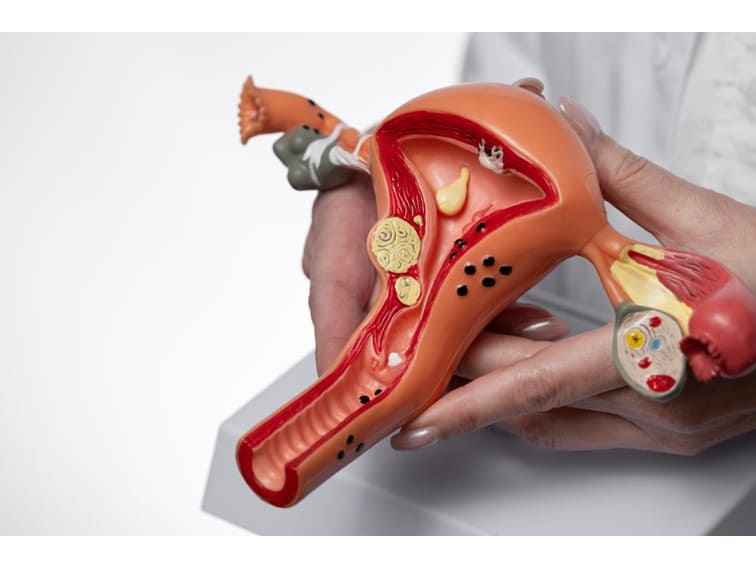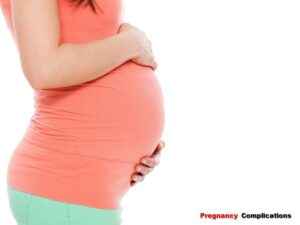Endometrial Polyps Causes, Diagnosis and Treatment
Uterine polyps or endometrial polyps are overgrowth of cells that lines endometrium of the uterus. They attach to the inner wall of the uterus and extend into the uterine cavity. Benign or noncancerous uterine polyps can sometimes become cancerous. They may turn into precancerous polyps.
The Size and Structure of a Uterine Polyp
Uterine polyps’ size can range anywhere between a few millimetres to a few centimetres. Sometimes, they may grow as large as the size of a golf ball. Uterine polyps have a thin stalk or a large base with which they attach to uterine wall.
A woman can have one or many polyps within the uterus. Polyps often remain confined within the uterine cavity. However, occasionally, polyps may extend down through the opening of the uterus. Uterine polyps can occur in women who are about to reach menopause or have reached menopause. They can also occur in young women.
What are the symptoms of Uterine Polyps?
The signs and symptoms of uterine polyps include the following:
- Abnormal menstruation – variations in the length and heaviness of periods
- Unpredictable or frequent periods
- Irregular menstrual bleeding or intermenstrual bleeding.
- Excessively heavy menstrual periods
- Infertility (trouble getting pregnant)
- Post menopausal bleeding
Some women remain symptoms free while others may have light bleeding or spotting.
What are the risk factors for developing uterine polyps?
The risk of developing uterine polyps increases in the following cases:
- Excess body weight (Obese women)
- Perimenopausal or postmenopausal women
- Women with hypertension or high blood pressure
- Women taking medicines for the treatment of breast cancer (for example: tamoxifen)
What are the complications associated with Uterine (Endometrial) polyps?
Uterine polyps do not turn cancerous. In very rare cases, they may turn cancerous. The chances of a uterine polyp turning into precancerous and then into cancerous become high when a woman has gone through menopause. Most commonly uterine polyps might be associated with infertility. In some cases, removal of uterine polyps can help a woman get pregnant if she is unable to conceive. A woman with uterine polyps is most likely to miscarry. Uterine polyps can block cervix or fallopian tube and can also keep a fertilized egg away from attaching to the uterus and thus prevent pregnancy.
Diagnosis
If your gynaecologist suspects uterine polyp after a thorough examination and evaluation of your symptoms, she may recommend one of the following: Transvaginal ultrasound (a procedure by which soundwaves are used to create an image of the uterus) or a hysterosonography ,
Hysteroscopy (a thin, flexible, lighted instrument) – your gynaecologist uses a hysteroscope to examine the inside of your uterus.
Endometrial biopsy: A small tissue sample is collected from inside the uterus using a suction catheter. The specimen is collected for lab testing.
Treatment
Your gynaecologist may prefer watchful waiting approach if you don’t have symptoms. Small and asymptomatic polyps usually go away on their own. However, women aged around 45 to 50 years are at an increased risk of uterine cancer – especially when they have gone through menopause. In these cases, gynaecologist recommend surgical removal of polyps.
Medications
If you have symptoms such as heavy bleeding, your gynaecologist may prescribe medications to control the bleeding also sometimes progesterones which can ease symptoms and shrink polyps.
Surgery
Polypectomy: The best way to treat polyps is to remove them. Gynaecologists remove polyps during a hysteroscopy or curettage procedure. For further analysis, your gynaecologist will send the removed polyps to a laboratory.
Hysterectomy: Uterine polyps are mostly benign as more than 95% are non-cancerous. However, if your gynaecologist detects any malignancy, she will suggest a hysterectomy to prevent the cancer from spreading depending on the age factor.
Endometrial Ablation: This procedure is helpful in preventing the growth of the Endometrial polyps and also managing abnormally heavy periods. Your gynaecologist will recommend this procedure if you don’t want to have children.
Bottom Line
Rarely, uterine polyps can recur. If they do, you might need more treatment. If you have abnormal bleeding and other symptoms, you must see a gynaecologist as your symptoms can also be due to other gynaecological conditions such as uterine fibroids and ovarian cysts.





